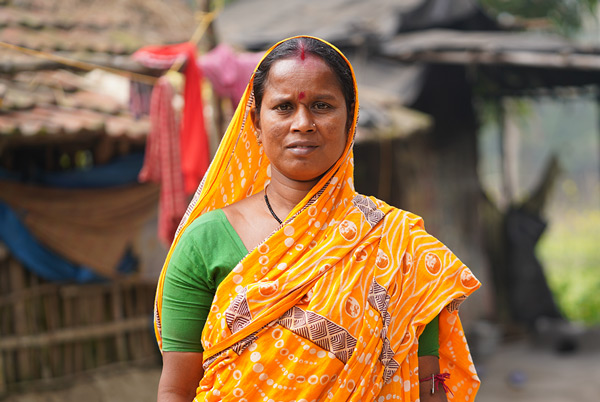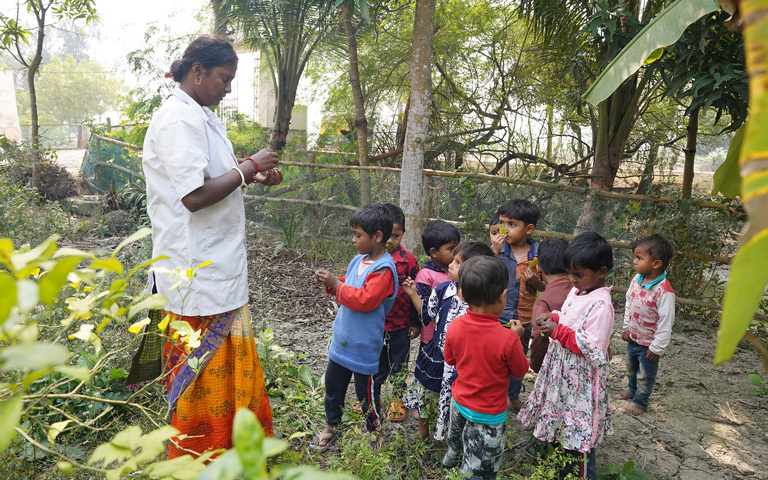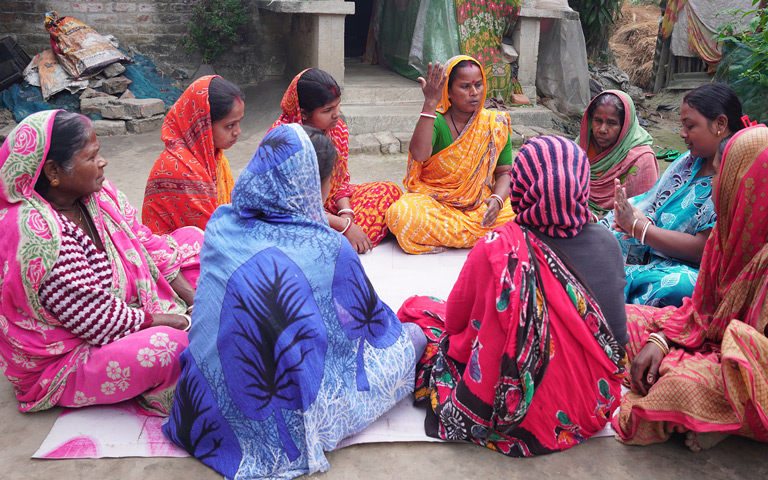Mangala's story
An empty lap
Mangala’s son would be on the cusp of adulthood had he not drowned seventeen years ago in a pond near the family home in a village in West Bengal.
She recalls how the day he died had started out like most others. Her husband, brother-in-law and father-in-law had left the house as the sun was rising, off to farm the land they rented nearby.
Her mother-in-law stayed at home to help care for Mangala’s two young sons while she started cooking for the family.
While Mangala was finishing the curry her mother-in-law headed outside to greet a passing salesman. Unbeknownst to her, her young grandson had followed her. When she stepped back indoors, alone, Mangala called for her son. When he did not respond, they started looking in earnest.
The search proved fruitless.
I looked everywhere, in every corner of the house, but I didn’t find him. Then I shouted, asking neighbours where my child was. No one had seen him.
By:Mangala
Mother who lost her child through drowning

It was Mangala’s brother-in-law who found his nephew. The little boy had ventured just a short distance from home, fallen into the pond and drowned.
Her lap feels empty now her son no longer sits in it, Mangala says.
From tragedy to opportunity: daycare for children
Having to manage home, work and caring responsibilities is a reality for many families in Mangala’s community. When anything goes wrong, people are often quick to blame the parents, but this juggle plays out in an environment where water is everywhere - the many ponds, streams and rivers swell and overflow during rainy season. Constant vigilance is almost impossible.
One solution is now protecting children when they are most vulnerable – from morning to early afternoon. The George Institute, working with CINI, a national child health and education NGO, came to Mangala’s village:

They proposed to open a KAVACH (meaning ‘armour’ in Hindi) daycare centre for all children whose parents are too burdened to ensure constant supervision. Where all children will be safe.
By:Mangala
Run by local women for local children, the KAVACH offered an opportunity for families to manage essential work in the knowledge that their children were safe. Mangala also saw an opportunity. She now works at the local centre as a KAVACH mother.
I care for them as if they are my own
She reflects on the life-saving potential of the KAVACH not just for the safe space it provides but for the skills acquired through it. Mangala has learnt about water safety, safe rescue and resuscitation techniques, and about how fencing ponds and water bodies can help to keep children safe.
I’ve learnt various things which I didn’t know when my child drowned. If I knew then what I know now about how to protect and safely rescue a child, then I could have saved my son.
By:Mangala

While at daycare the children learn about water safety as well as benefit from broader education covering cognitive and social development through stories, dance and rhyme. This knowledge is saving lives.
Mangala doesn’t want any other parent to experience her pain. She cares for the children attending the KAVACH as if they were her own.
Together, by adopting preventive solutions and taking informed action, Mangala and her community are protecting the next generation.
In 2024 The George Institute for Global Health and CINI implemented an Indian Council of Medical Research funded project in Mangala’s community to test the feasibility and acceptability of child drowning interventions. Following learnings of what worked, and challenges faced, larger-scale trials are needed to: better understand the effectiveness of these interventions in reducing drowning, implementation costs, identifying context-appropriate delivery mechanisms, and effective integration opportunities of such interventions with existing government programmes.
Read more about how our research has helped people like Mangala.
Do you believe in a better, healthier world for all, regardless of circumstance?
Here is your chance to make a difference.

